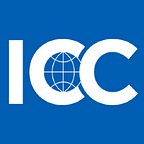We need to save our small businesses — before it’s too late
Economic disruptions caused by COVID-19 have left small businesses scrambling. Governments and international institutions must do everything in their power to ensure the survival of these enterprises.
Few global supply chains have been spared from COVID-19’s wrath. With public places closed, trade routes blocked, and export restrictions in place, micro-, small-, and medium sized enterprises (MSMEs) and their employees have been among the hardest hit from the economic repercussions of COVID-19. Given that MSMEs form the backbone of the world economy — accounting for upwards of 80% of employment in many countries — we must provide them with safeguard measures to maintain their operations and livelihoods.
The collapse of the garment industry is illustrative of the economic damage wrought by COVID-19. With retailers shutting their storefronts around the world, garment producers are being told to cancel and delay bulk order shipments, leaving millions of workers, including some of the most vulnerable, at risk.
In Bangladesh alone, US$2.67B in garment orders have been cancelled since the start of the year, according to the Bangladesh Garment Manufacturers and Exporters Association. These order cancellations will have enormous implications for Bangladesh’s 4,000 garment factories, as well as the lives of the nearly 4 million workers they employ. Similar trends are emerging across other developing Asian economies, like Vietnam, Thailand, Myanmar, and Cambodia, leading the World Bank to predict that 11 million people from the region will enter poverty in 2020.
A similar trend is anticipated in other major garment exporting countries across the world, from Italy and Portugal to Tunisia and Morocco and across Latin America. And what we are now seeing in this sector is, to be sure, a forerunner to much broader disruption across a whole spectrum of industries and sectors.
This is an economic downturn without historical precedent. One that requires a truly unprecedented response from all stakeholders — whether national governments, international institutions or multinational corporations — to safeguard the foundations of global economic activity and the livelihoods of billions of workers throughout the world.
This necessitates a very different response to the measures taken by governments to arrest the global financial crisis just over a decade ago. If the bailouts of 2008 were all about Wall Street, today’s responses need to put the “man on the street” first. First and foremost, national governments need to provide MSMEs with direct and immediate support to ensure they can stay afloat. These safeguard measures should include concessionary loans, payment deferrals and wage subsidies to keep workers employed.
Next, governments must ensure that this support reaches MSMEs and their workers quickly. In a matter of three months, COVID-19 has spread from one city to nearly every country in the world. With many small businesses measuring their cash reserves in weeks, if not days, failing to act now could result in a cascade of insolvencies that would plunge the world into a sustained global recession. We need to ensure that support measures are readily accessible to all MSMEs — for the survival of businesses every day counts. This will be a challenge in many economies — so, policy innovation and international cooperation will be critical.
To avert worse-case scenarios — and recognizing that not every job will be saved — governments should do all they can to increase social protections, provide emergency income support, and offer temporary relief from personal loan payments. Likewise, governments should bolster existing state-sponsored programmes to offer citizens additional social protections. By introducing such measures, governments can compound the spread of the virus and build the foundations for a sustained economic recovery.
Fiscal stimulus and social protection measures should be just two components of a much broader package of interventions to help MSMEs weather the COVID-19 storm. Trade policy tools, for instance, can be rapidly deployed to provide a boost to struggling small businesses. Measures to keep cargo ships moving, ensure the flow of trade finance, extend timeframes for duty payments, and remove tariffs on some supplies would be a good start in this regard. This will no doubt run counter to the instincts of some politicians to retreat within national borders in response to the crisis. But protectionist measures will only heighten disruption within global supply chains, further compounding the pain which many MSMEs are facing today.
More broadly, there is a need to ensure interventions to limit the economic damage of COVID-19 are based on genuine dialogue between governments, employers, workers, and communities. Governments must ensure that they remain in direct contact with MSMEs and their employees — only by understanding what’s really happening on the ground can governments truly arrest the crisis currently unfolding in front of us.
The choices we make today will determine our future tomorrow. It’s time for concerted global action to “Save Our SMEs” — before it’s too late. The backbone of our global economy and the livelihoods of billions of people depend on it.
John W.H. Denton AO, Secretary General, International Chamber of Commerce
